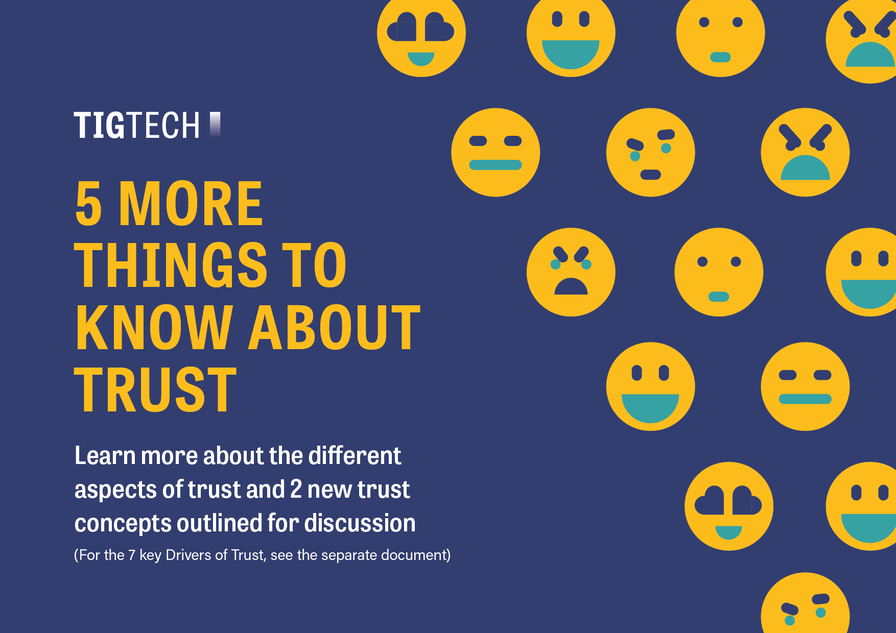5 more things to know about trust — TigTech

my notes ( ? )
"5 interesting things ... distilled from a helicopter view of trust from various branches of psychology, sociology, behavioural science and Responsible Research and Innovation."
- focus on others: "perhaps similar to love and happiness, the more doggedly trust is pursued for its own sake, the more elusive it may become", so turn your "attention outwards towards the needs of others" rather that your own
- it's hope that someone can be trusted
- trust someone proactively: you'll be more likely to be trusted yourself, and engender trustworthy behaviour in the person you're trusting (cf game theory, tit4tat strategy)
- so it's 2-way
- it's a spectrum, not binary. In the middle is "resigned trust: ‘I don’t have much choice to trust or not, so I suppose I have to’. The state of mind is one of Active Distrust but the person exhibits the behaviours of Active Trust"
"Trust decisions have three interconnected elements... including
- possibly genetic components
- body chemistry: oxytocin makes us more trusting; stress reduces oxytocin levels; likely gut microbiome
- cognitive biases
- experience: formative years: feelings of safety, and breadth of experience; whether we've been trusted or betrayed in the past
- personal and cultural context: "our decision to trust is influenced by our immediate circumstances and social influences"
- worldview: "how people filter their experience of reality through their values (things we see as important) and beliefs (things we hold to be true); ... our sense of identity... the narrative we weave about ourselves... shapes our decisions of who to trust and why (cf WYSIATI); group belonging"; our risk/benefit calculation; how we perceive others' behaviours.
Read the Full Post
The above notes were curated from the full post www.tigtech.org/insights/5-more-things-to-know-about-trust.Related reading
More Stuff I Like
More Stuff tagged values , cognitive , trust , identity , game theory
See also: Content Strategy , Online Community Management , Social Media Strategy , Psychology , Social Web , Politics , Science&Technology , Business